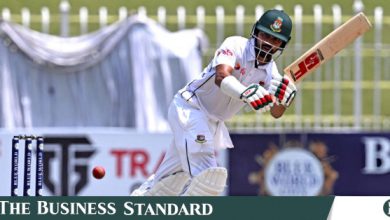Workload crisis: Is a player strike looming in football?

Manchester City midfielder Rodri recently stirred debate by suggesting that players might soon go on strike due to the increasing demands placed on them.
Speaking after a 63-game season, including helping Spain win Euro 2024, Rodri expressed concerns shared by many top players: “If it keeps this way, we will have no other option. It’s something that worries us.”
Rodri’s comments, alongside similar concerns from Liverpool’s Alisson Becker, raise crucial questions about whether the game’s top stars are being pushed too far. With expanded competitions and added fixtures, are footballers facing an unsustainable workload? And if so, is a strike the best way to address the problem?
The Mounting Pressure on Players
Football’s calendar has become busier than ever. In European competitions, teams now play two more group-stage matches, up from six to eight. If they don’t finish in the top eight, they must also play two additional playoff matches before reaching the round of 16. Similarly, the 2025 FIFA Club World Cup will be expanded, with European teams required to play more matches. Previously, teams played only the semi-final and final, but the new format mirrors the FIFA World Cup, adding to the summer workload.
English clubs, in particular, face even greater pressure, competing in two domestic cup competitions (FA Cup and Carabao Cup), while most European teams only have one. For teams like Liverpool, which played 58 matches last season, this means players are frequently playing more than 60 games annually.
Impact on Performance and Player Welfare
Rodri and Alisson are not alone in expressing concern. Rodri stated, “Between 40 or 50 is the amount of games in which a player can perform at the highest level. After that, you drop because it is impossible to sustain the physical level.” Top players are being asked to perform at their peak for upwards of 70 to 80 games in a season, which is taking a toll on both physical and mental well-being.
Alisson echoed these sentiments, pointing out that players’ voices are often ignored when decisions about schedules are made. “Everybody knows what we think about having more games. Everybody’s tired of that,” he said. The combination of fatigue and injury risks compromises the quality of football fans watch, with exhausted players unable to perform at their best.
Fans, too, could begin to feel the effects. Rotating players in lower-priority competitions often leads to empty seats in stadiums and diminished interest from viewers at home. If the quality of matches declines due to player fatigue, the spectacle may suffer, leaving fans feeling shortchanged.
Would a Strike Work?
While player frustration is understandable, a strike may not achieve the desired results. Public sympathy could be limited for highly paid athletes, especially as fans invest considerable time and money into supporting their teams. The general public might find it hard to support players walking out over workload concerns, even if those concerns are valid.
Moreover, the issue is not just with FIFA and UEFA. Many clubs have pushed for expanded competitions and more fixtures, motivated by commercial interests and fan pressure. While clubs like Manchester City have large squads, they still feel compelled to field their strongest lineups, which contributes to player burnout.
Finding a Better Solution
The current schedule is unsustainable, but a strike may not be the best solution. Instead, ongoing negotiations between players’ unions like FIFPro and governing bodies are crucial. One potential step could be capping the number of matches a player can play in a season, along with ensuring proper recovery periods during the summer.
As football’s calendar becomes increasingly crowded, clubs, players, and governing bodies must work together to reduce the strain on players. Fewer matches and better scheduling could result in higher-quality football and longer, healthier careers for the athletes.




